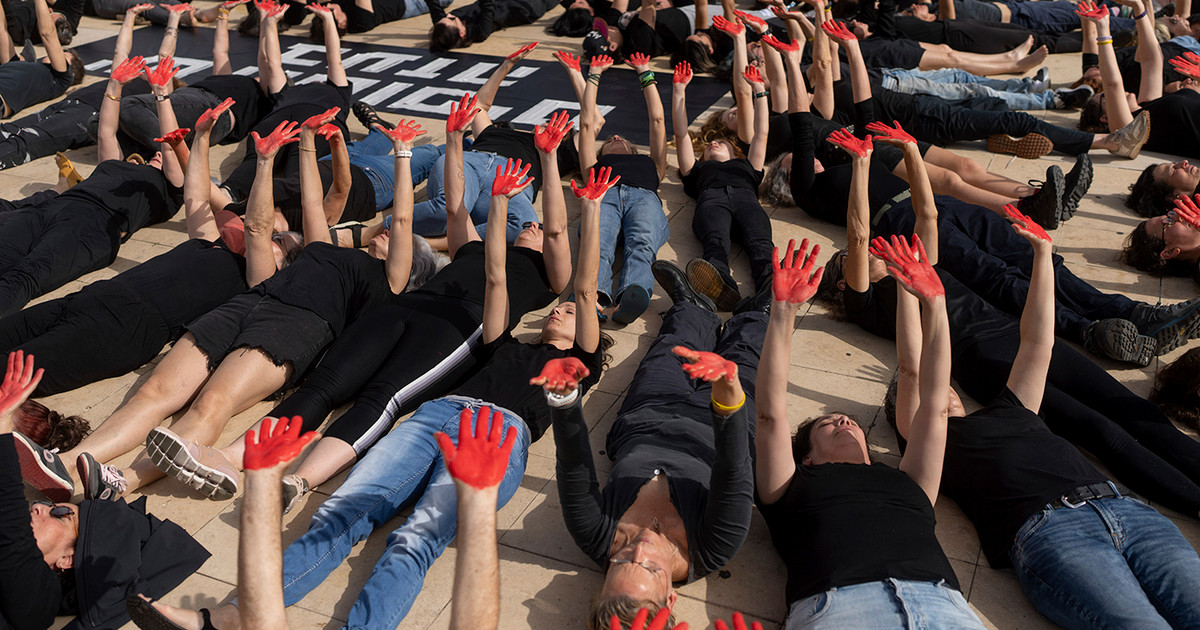Fraud fueled by human trafficking is exploding in Southeast Asia, with organized crime groups raking in nearly three trillion dollars in illicit revenue annually, the head of Interpol said in comments that reveal the huge profits made by the cartels.
An international organized crime group earns $50 billion a year, according to Interpol Secretary-General Jurgen Stock, adding that $2 trillion to $3 trillion of illicit money flows through the global financial system annually. To compare, France's economy is worth US$3.1 trillion according to the International Monetary Fund.
While drug trafficking contributes about 40% to 70% of organized crime's income, criminal groups are also using these smuggling networks to illegally move human beings, weapons and stolen goods, among other things, Stock said.
“Driven by online anonymity, inspired by new business models and accelerated by Covid, these organized crime groups are now working on a scale that was unimaginable a decade ago,” Stock said in a briefing at the coordinating body’s global office. police officer in Singapore on Wednesday (27).
“Today, a bank – or indeed any bank – is less likely to be robbed at gunpoint than via a keyboard by someone on the other side of the world.
What began as a regional crime threat in Southeast Asia has become a global human trafficking crisis, with millions of victims both at the centers of cyber scams and targets.”
Interpol says its operations in Asia have led to nearly 3,500 arrests and the seizure of $300 million in illegally obtained assets in 34 countries since 2021.
Survivor testimonies, NGO campaigns and media reports over the past three years have increasingly exposed an explosion in online fraud gangs operating in Southeast Asia, many using de facto slave labor to target people around the world, including the United States.
Victims across Asia are often tricked into seemingly legitimate jobs across the region and then trafficked into fraudulent compounds where they face serious abuse, including forced labor, arbitrary detention, degrading treatment or torture – often with minimal assistance. or none of the local authorities.
Hundreds of thousands of people are trafficked into online crime across the region, according to a United Nations report last year.
The UN has estimated that up to 120,000 people could be held in compounds in Myanmar, which has been plunged into civil war since a military coup in 2021, with another 100,000 people detained in Cambodia and elsewhere in conditions that amount to modern slavery.
Criminal enterprises also exist in Laos, Thailand and the Philippines, with many of the profitable online fraudulent operations ranging from illegal gambling to romance scams and cryptocurrency frauds.
“People who are coerced into working in these fraudulent operations suffer inhumane treatment while being forced to commit crimes. They are victims. They are not criminals,” said the United Nations High Commissioner for Human Rights, Volker Turk, in the report.
A key hub for fraudulent associations is Myanmar, which shares a mountainous border with southwest China – and Beijing is now trying to crack down on cross-border crime targeting Chinese citizens.
In heavily guarded compounds controlled by local warlords, tens of thousands of people, mainly Chinese, have been arrested and forced by criminal gangs to defraud strangers with sophisticated internet schemes. Beijing has pressured Myanmar's military government to rein in fraudulent operations, but with limited success.
Elsewhere, casinos in the Philippines that cater to illicit gamblers from China have spread across the country, with authorities in Manila scrambling to curb the growing number of gambling establishments used as fronts for centers and other fraudulent crimes.
Earlier this month, more than 800 Filipinos, Chinese and other nationals were rescued during a police raid on an online romance fraud center posing as a casino, about 100 kilometers from the capital, the official news agency said. Philippine news, citing local officials.
Hundreds of victims were made to pose as lovers and lure people into sending money, in what is commonly known as a “pig butchering” scam.
The victims, some from Malaysia and Vietnam, told local investigators that each worker was forced by alleged crime lords to embezzle $42,000 daily online, and said they were beaten when they failed to meet that goal.
And scammers are getting more sophisticated, using artificial intelligence to trick corporations.
In Hong Kong, a finance employee at a multinational company was persuaded to pay $25 million to fraudsters using deepfake AI technology to pose as the company's chief financial officer in a video conference, according to local police. It is not known where the scammers were based or where the money went.
Source: CNN Brasil
Bruce Belcher is a seasoned author with over 5 years of experience in world news. He writes for online news websites and provides in-depth analysis on the world stock market. Bruce is known for his insightful perspectives and commitment to keeping the public informed.






